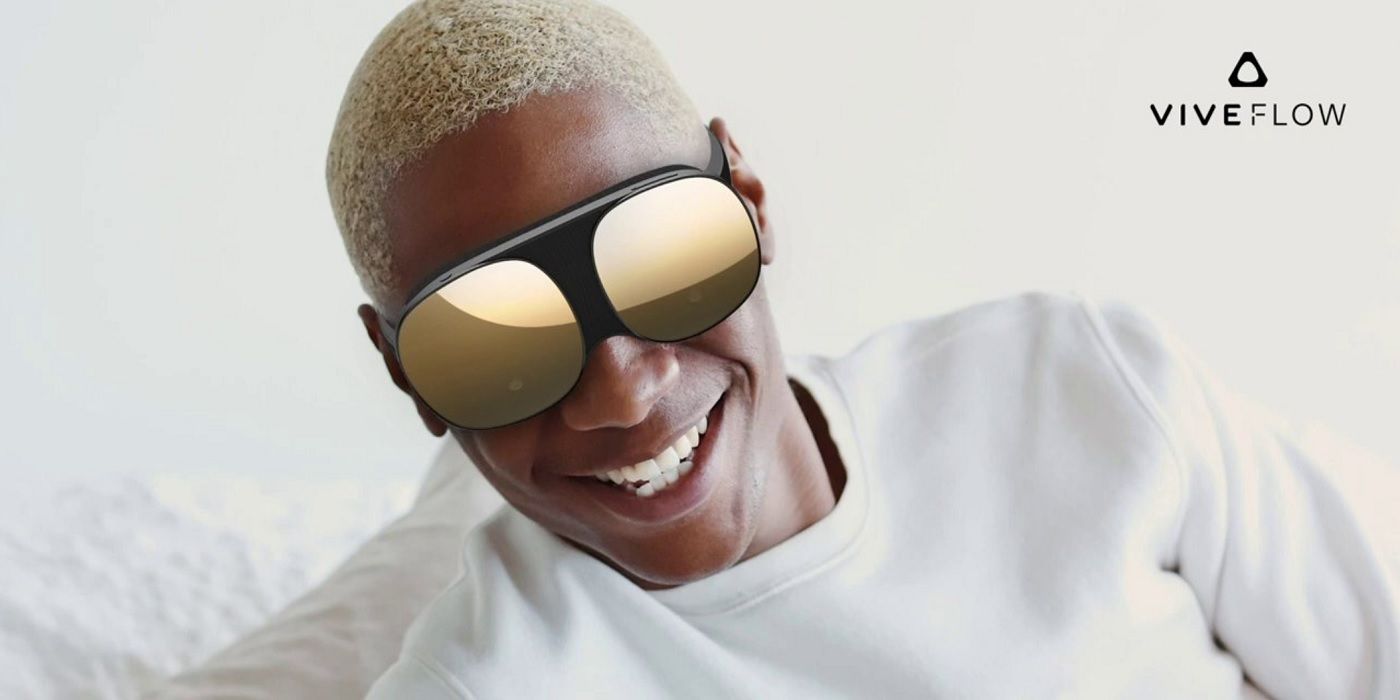
A number of HTC Vive Flow images leaked recently and suggest that the upcoming virtual reality headset will have a far more interesting look than the company's previous VR headsets. The images also show that the headset has a surprising amount of depth when it comes to the features being showcased. Taiwanese electronics giant HTC has a history in developing virtual reality hardware that appeals to a wider audience instead of just hardcore tech enthusiasts.
The company unveiled its Vive VR headset lineup more than five years ago, and has released various iterations since then. If there's one thing HTC Vive headsets have in common, it's their futuristic and sometimes bizarre aesthetic. As the concept of VR alone continues to produce shocking results, HTC has continued to make outlandish-looking tech pieces available to the mass market, from its obscurely-shaped Vive Focus to the unique geometrical cut-outs of the Vive Cosmos.
It appears that HTC isn't dropping this trend anytime soon, as leaks of its upcoming Vive Flow headset depict yet another standout set of VR goggles complete with reflective lenses that strangely resemble massive bug-eye sunglasses. Prolific leaker Evan Blass (@evleaks) released the set of promotional images to Twitter, with the materials detailing some of what consumers can expect from the Vive Flow. For example, the leaked images show that the headset itself will retail for $499, with pre-orders starting on October 15 and shipments beginning some time in early November.

The Vive Flow's design certainly has the living room in mind instead of the usual VR cave, with an emphasis on portability. The leaked images show how the headset can project media streamed from a tethered smartphone while using the handset as a remote control. Other features include an “active cooling system” using an internal fan in the center, which could be useful for those planning on wearing the goggles for longer periods, or for those that want to take VR motion to the next level. The images also showcase the Vive Flow's built-in audio system that features “immersive spatial audio,” though it's unclear whether these are utilizing bone conduction technology or just external speakers.
Overall, the Vive Flow is marketed as VR goggles designed for “well-being and mindful productivity” so whether it is an alternative to gaming-focused headsets like the Oculus Quest remains to be seen. Perhaps the HTC Vive Flow will take a more grounded approach in presenting itself as a health and well-being-oriented tool that complements one's lifestyle. If that is the case, it just might be able to break the mold of devices that are typically associated with escapism and isolation, especially given the many potential use cases of VR headsets outside of gaming.
Source: Evan Blass/Twitter
Comments
Post a Comment